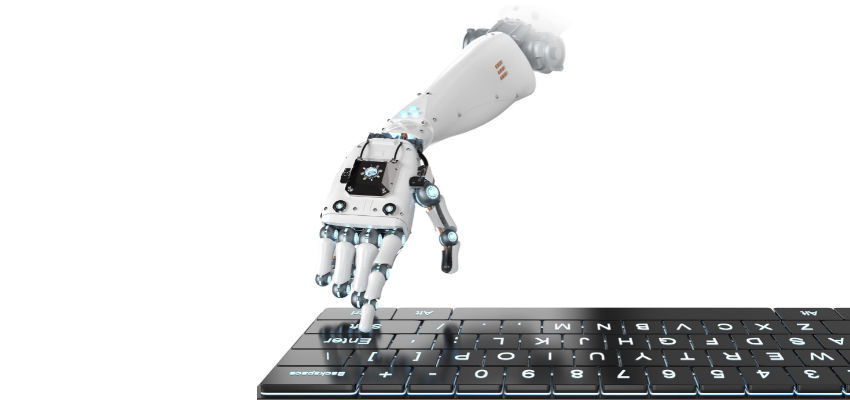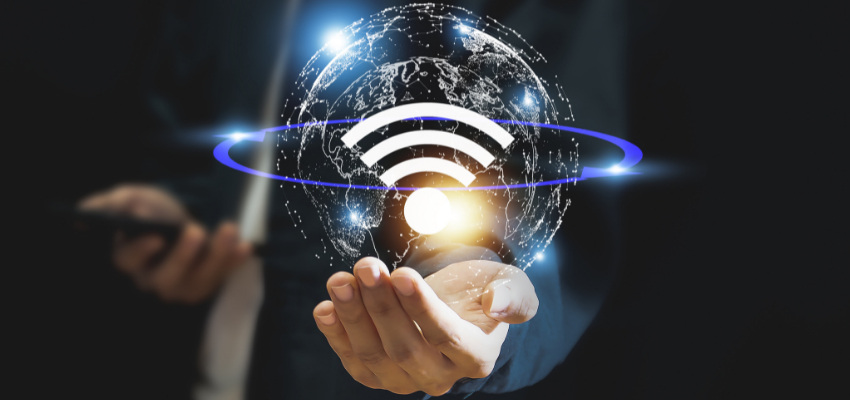Show:
From Clicks to Conversions: How AI is Reshaping Digital Marketing
The rapid advancement of artificial intelligence is transforming digital marketing, allowing businesses to refine their strategies and improve customer engagement. AI-driven technologies are streamlining data analysis, optimizing content, and personalizing user experiences, ultimately increasing conversion rates. This shift is redefining the way brands interact with their audiences, making marketing efforts more effective and efficient.

Data-Driven Decision Making
One of AI’s most significant contributions to digital marketing is its ability to process vast amounts of data in real-time. Traditional analytics tools require manual interpretation, but AI-powered algorithms can quickly identify trends and consumer behaviors. Marketers can use this information to tailor campaigns, predict customer needs, and refine their strategies. This level of data precision ensures that efforts are targeted and aligned with audience preferences, leading to higher engagement and conversion rates.
Personalization at Scale
Consumers expect personalized interactions, and AI makes it possible to deliver tailored content to a large audience. Machine learning algorithms analyze browsing history, purchasing behavior, and demographic data to create customized recommendations. Whether through product suggestions, targeted ads, or dynamic website content, AI enables businesses to engage users in a more meaningful way. This hyper-personalization increases the likelihood of conversion by presenting users with relevant information at the right moment.
Chatbots and AI-Powered Customer Support
AI-driven chatbots have revolutionized customer service, providing instant responses to inquiries and guiding users through the buying process. Unlike human agents, chatbots can handle multiple interactions simultaneously, ensuring quick and efficient communication. They can answer frequently asked questions, offer personalized recommendations, and assist with transactions. By automating customer support, businesses can enhance user satisfaction while freeing up resources for more complex tasks.

AI-Optimized Content Creation
Content marketing remains a cornerstone of digital strategy, and AI is playing a growing role in content generation. Advanced tools analyze search trends and audience interests to suggest topics that will perform well. Additionally, AI-driven writing assistants can help create high-quality content by optimizing headlines, structuring articles, and improving readability. These capabilities allow marketers to produce engaging and SEO-friendly material more efficiently.
Multilingual SEO and AI
Expanding into international markets requires a well-executed SEO strategy that accounts for different languages and cultural nuances. AI-powered tools enable businesses to implement multilingual SEO services effectively. They analyze local search trends, optimize keywords in multiple languages, and adjust content to fit regional preferences. By leveraging AI for multilingual SEO, brands can improve their visibility in diverse markets and attract a broader audience.
For companies looking to enhance their global reach, working with a multilingual SEO company can further streamline the process. AI tools facilitate automated translations, identify the most relevant keywords for different languages, and ensure that content aligns with local search behaviors. This level of precision helps businesses rank higher in international search results, driving more traffic and increasing conversion potential.
Predictive Analytics for Smarter Campaigns
AI’s ability to analyze historical data allows marketers to anticipate customer behavior and adjust strategies accordingly. Predictive analytics tools assess previous interactions, purchase history, and engagement patterns to determine future actions. This insight helps businesses refine their advertising efforts, allocate budgets more effectively, and create targeted promotions that resonate with their audience. By leveraging AI for predictive analytics, brands can stay ahead of market trends and optimize their marketing ROI.
AI in Programmatic Advertising
The use of AI in programmatic advertising has transformed how businesses allocate ad spend. Machine learning algorithms assess user behavior in real-time, automatically placing ads where they are most likely to generate engagement. This automation eliminates guesswork and ensures that marketing budgets are used efficiently. By analyzing conversion data, AI continuously refines ad placements to maximize results, making campaigns more cost-effective and impactful.
Enhanced Customer Journey Mapping
Understanding the customer journey is essential for optimizing conversion rates. AI-powered tools track user interactions across multiple touchpoints, providing valuable insights into how customers move through the sales funnel. By identifying pain points and areas for improvement, businesses can make data-driven adjustments to enhance user experience. This comprehensive view of the customer journey enables brands to create seamless and engaging interactions that drive conversions.
Fraud Detection and Security in Digital Advertising
Digital advertising fraud is a growing concern, with fake clicks and bot traffic leading to wasted ad spend. AI-driven security solutions can detect fraudulent activity by analyzing patterns and identifying suspicious behavior. By filtering out invalid traffic, businesses can ensure that their marketing efforts are reaching genuine users, improving overall campaign performance. AI also enhances cybersecurity measures by monitoring data breaches and protecting customer information.
Conclusion
As AI continues to evolve, its impact on digital marketing will only expand. Future advancements may include even more sophisticated predictive models, improved natural language processing for content generation, and enhanced personalization techniques. Businesses that embrace AI-driven strategies will be better positioned to adapt to changing consumer expectations and maintain a competitive edge in the digital landscape.
AI is no longer a futuristic concept—it is actively reshaping digital marketing by optimizing campaigns, personalizing customer experiences, and improving conversion rates. By leveraging AI-driven technologies, businesses can refine their strategies, enhance efficiency, and achieve greater success in an increasingly competitive market.

 Return to Previous Page
Return to Previous Page








